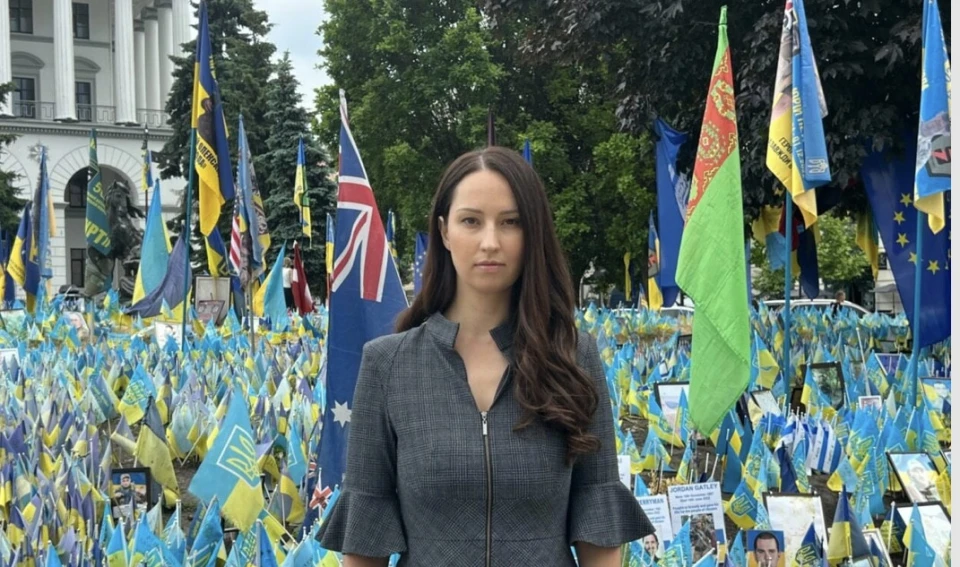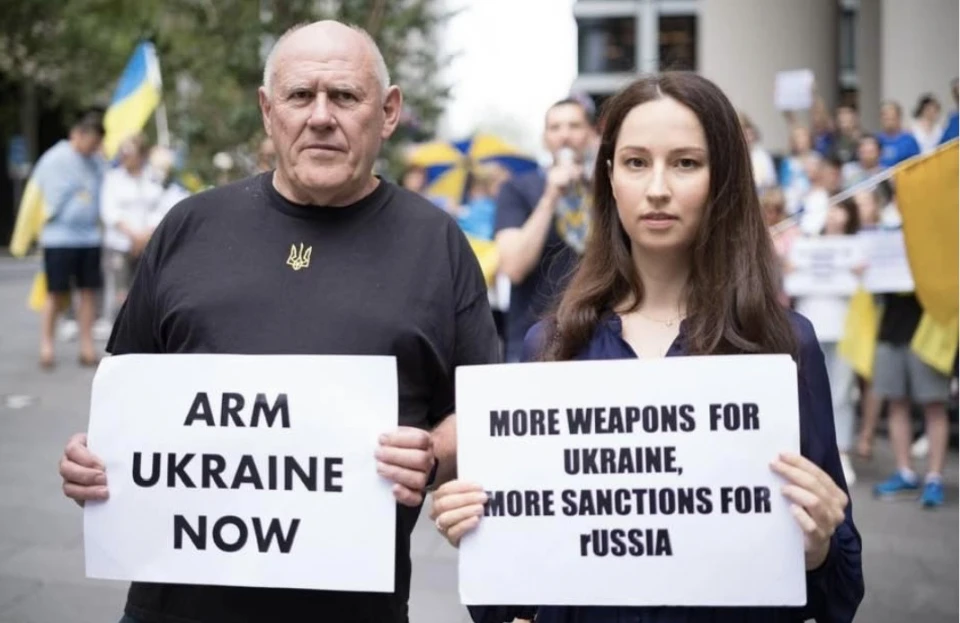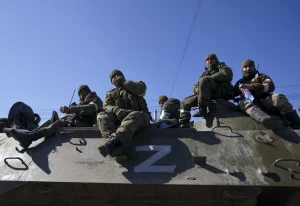
Ukrainian activist from diaspora: "It is important to maintain identity abroad"
Kateryna Argyrou was born in Ukraine, spent her childhood in Canada, and moved to Australia 11 years ago. She co-chairs the Australian Federation of Ukrainian Organisations (AFUO) and co-founded both the Australia-Ukraine Chamber of Commerce (AUCC) and Future Ukraine, a charity fund for Ukraine. The woman constantly calls on Australian politicians to increase military assistance to Ukraine's Armed Forces
Now Kateryna has come to Ukraine for the first time in five years. In an interview with the Ukrainian World Congress, she spoke about her motivations for supporting Ukraine from abroad, the history of her family, which survived Soviet-era labor camps, and the efforts of the Ukrainian diaspora to combat 'war fatigue.'
Purpose of the visit to Kyiv
”Ukraine has always held a special place in my heart; I have family here and used to visit often, sometimes several times a year. However, this trip was my first in the last five years”, she said.
Kateryna explained that her visit to Kyiv was driven by a desire to connect with those receiving support from the Australian Federation of Ukrainian Organisations (AFUO) and to assess how best to continue their aid efforts.
”The primary purpose of my visit was to connect with the people the Australian Federation of Ukrainian Organisations (AFUO) supports, to understand the current situation, and to identify our priorities for future support. The AFUO provides substantial humanitarian and military aid to Ukraine. To date, we’ve contributed nearly AU$20 million (over US$13 million) in assistance through our two humanitarian funds, “Ukraine Crisis Appeal” and “Future Ukraine,” and a military fund, “Defend Ukraine Appeal,” she said.

Preservation of Ukrainian identity abroad
Kateryna recounted her upbringing with her grandmother, who endured nine years of torture and abuse in a Soviet labor camp in Kazakhstan. Her grandfather, also exiled for three years, met her grandmother there. They continued to fight for their right to practice their religion, speak their language, and live in an independent Ukraine.
”I was born in Dubliany, Lviv region, grew up in Canada, and now live in Australia. In the diaspora, I was initially seen as a ‘newcomer,’ like many other Ukrainians who emigrated more recently. However, everything changed after Russia’s aggression against Ukraine began in 2014, especially after the full-scale invasion. Now, all Ukrainians abroad are united by a common goal. At AFUO, we merge the experiences of newcomers and community founders to create a powerful community adept at working with government agencies, engaging diaspora members, and running advocacy campaigns for Ukraine,” she explained.
Kateryna emphasized the importance of maintaining one's Ukrainian identity abroad, stating that it is a fundamental part of who they are. Despite leaving Ukraine at age six, she always identifies as Ukrainian rather than Canadian, American, or Australian.
"Our unique culture and country are worth protecting and preserving. After all, who else will do it if not us?" she said.
She particularly stressed the significance of this for the younger generation. Recalling her own experience, Kateryna mentioned that when she started school in Canada, she did not know a single word of English. However, she quickly learned the language, while her parents' efforts ensured she retained her Ukrainian identity through constant communication at home in Ukrainian.
Role of Australian Federation of Ukrainian Organizations (AFUO) in helping Ukraine
According to Kateryna, the AFUO has a clear action plan focused on several key areas. Providing military aid to support Ukrainian defenders on the front line is a top priority, with efforts in each state to raise necessary funds. They are also addressing visa issues for about 11,500 displaced Ukrainians who arrived in Australia nearly three years ago on humanitarian visas set to expire in 2025, creating uncertainty about their future.
"The AFUO also raises funds for humanitarian aid, tailoring our support to meet the evolving needs. Another key area of our activity is uniting the ‘old’ and ‘new’ communities and integrating newcomers. Our approach has evolved - if we had previously waited for people to come to us, we now proactively create opportunities for diasporans, particularly workers," she said.

Kateryna described an AFUO success story involving decommissioned helicopters. The Australian government planned to destroy these helicopters. The AFUO campaigned against this decision, involving journalists and emphasizing the helicopters' potential to save lives.
The campaign, intended to last three days, extended to three months and generated significant media attention. This pressure led the Australian Senate to review aid to Ukraine. Although Ukraine didn't get the helicopters, the effort resulted in a $100 million aid package for Ukraine.
'War fatigue'
Kateryna noted that Australian society often avoids confrontation and may respond more slowly than Ukraine needs. To combat 'war fatigue,' the AFUO has explored various ways of conveying information. Instead of merely reporting attacks, they emphasize the urgency of protecting Ukrainian children from Russian aggression.
She acknowledged a decline in attendance at their weekend rallies and protests, prompting a shift in focus. The AFUO now highlights the global impact of Russia's aggression and discusses universally resonant issues, such as the war's effects on Ukrainian children's mental health and how they can be supported.
- News












































